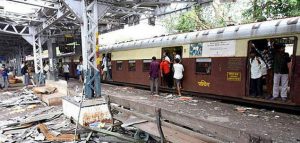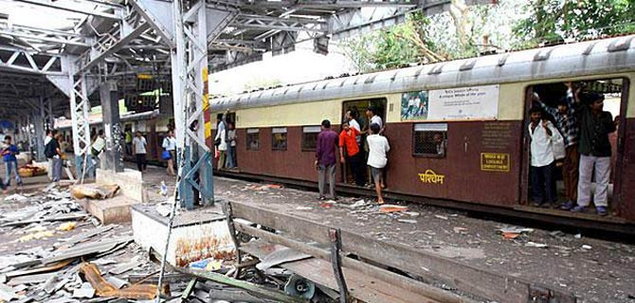
Janjivan Bureau
MUMBAI: 2006 Mumbai serial train blasts case five sentenced to death and seven others given life imprisonment by a special MCOCA court on Wednesday.
Special MCOCA judge Yatin Shinde pronounced the quantum of sentence almost two weeks after they were found guilty for the blasts that claimed 188 and injured 829 commuters in seven blasts that occurred during peak hours in the first-class suburban railway compartments in 2006.
The court awarded death to bomb planters Ehtesham Sidduiqui, Asif Khan, Faisal Shaikh, Naveed Khan and Kamal Ansari. The others including key conspirators, Dr Tanveer Ansari, Mohammed Ali, who provided his house in Govandi for bomb-making, and Sajid Ansari, who made timers and the electric circuit used in the bombs were given life sentences.
On July 11, 2006, seven blasts tore through the first-class compartments of crowded local trains in a span of 11 minutes during the evening rush hour as millions of office-goers were heading home. The blast occurred between Khar Road-Santacruz, Bandra-Khar Road, Jogeshwari-Mahim Junction, Mira Road- Bhayander, Matunga- Mahim Junction and Borivali.
According to investigators, around 20kg of RDX were packed into pressure cookers, placed in bags and hidden under newspapers and umbrellas. The explosions were so powerful that they ripped through the double layered steel roof and sides of the train compartments.
Soon after the pronouncement of the conviction verdict on September 11 during which one accused was acquitted, the defence in an unusual move, sought the examination of witnesses who deposed on the mitigating circumstances in favour of the convicts. The defence then went on to examine nine such witnesses. Among them were family members of the convicts, Nadeem Akhtar, a fellow inmate and an accused in the 13/7 Mumbai serial blasts, the IGNOU teacher posted in Arthur Road Jail and was Arun Ferreira, a writer and social activist, who was acquitted on charges of being involved in naxal activities.
However, in his final arguments which culminated on September 23, Thakare said that neither their age, educational qualifications, family situations nor the conditions during the incarceration, all highlighted during the deposition of the mitigating witnesses, qualified as mitigating circumstances to seek leniency. “They are the merchants of death. Thinkers pose a question and even public cry is that why honest taxpayers should be burdened into paying for the convicts’ maintenance and upkeep while they are imprisoned for the next 40-50 years of their lives,” Thakare said while seeking the death sentence.
In a departure from practice the defence in the case was directed to proceed with its submissions on the quantum of sentence before the prosecution. Following the examination of witnesses, on September 21, advocate for the defence, Yug Chaudhary commenced his arguments. Chaudhary referred to injuries and brutalities inflicted on them during police custody and forced narco analysis tests performed by a bogus doctor against whom an FIR was registered. He also said that the accused were kept in solitary confinement despite it being illegal even for those against whom death sentence is confirmed.
In 7/11 case Death for 5 bombers, life term for 7
ADVERTISEMENT

















